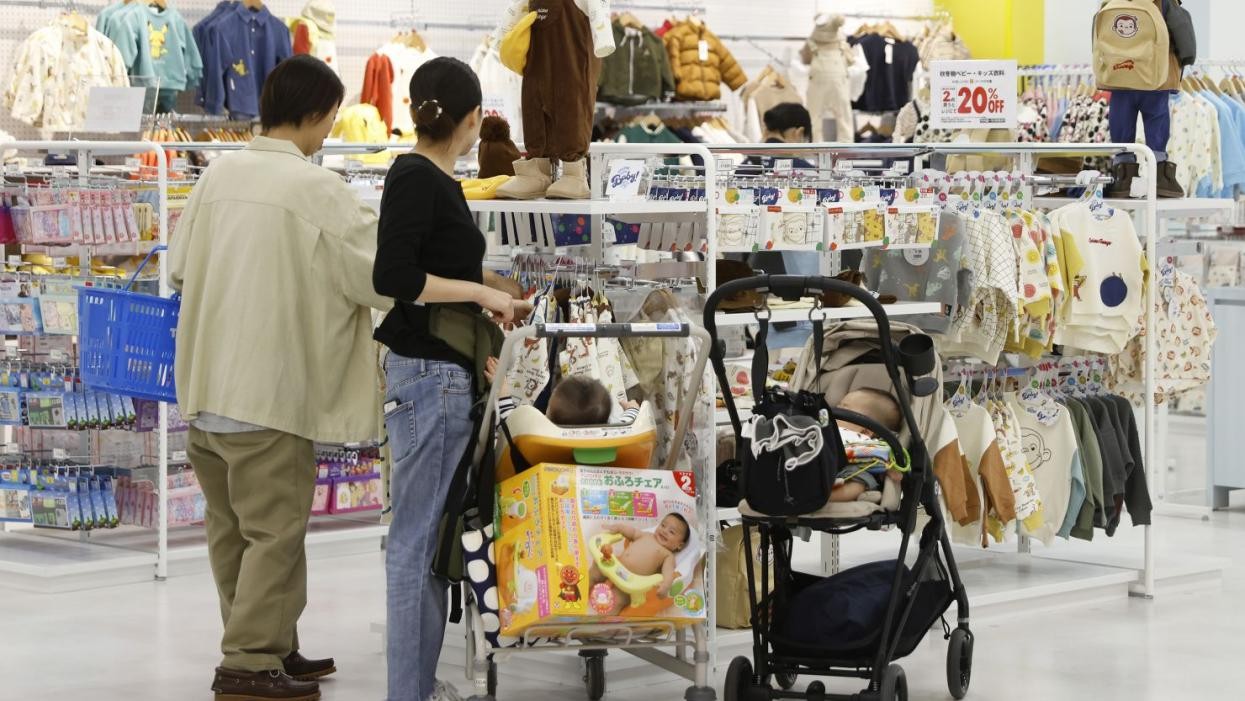
Every spring, Japan reliably releases severe new population data like seasons change. This scene has put the media in a predicament and has also led politicians to vow to solve the country's population crisis. This year is no exception. Preliminary data released by the government last week showed that the number of newborns in 2023 has decreased for the eighth consecutive year, reaching a historic low of 5.1% compared to the previous year.
Firstly, the population crisis has become one of the most pressing issues in Japan. Multiple governments have failed to reverse the trend of declining birth rates and expanding elderly populations, resulting in more deaths than births each year, leading to a rapid decline in population and having profound impacts on Japan's labor force, economy, welfare system, and social structure.
On the second day after Japan released preliminary data, South Korea also released its own data, showing that its fertility rate (the lowest in the world) will decline again in 2023. But experts say that Japan's crisis is very unique because it has been brewing for decades, which means its impact is now particularly evident and is unlikely to be alleviated soon. Therefore, regardless of which path Japan chooses, it may provide a roadmap for other countries facing unknown territories and give them a glimpse of their potential future.
Secondly, a large part of the population issue is related to Japan's history and population structure. To maintain population stability, the fertility rate needs to reach 2.1, which is the total number of times a woman gives birth in her lifetime. A higher ratio will lead to population expansion, with a large proportion of children and adolescents. But in Japan, the fertility rate has been below 2.1 for 50 years. After the global oil crisis in 1973 led to an economic recession, data fell to that level and never rebounded. As of last year, Japan's fertility rate was 1.3. This number has remained relatively stable for a long time, which means that the average number of children born to Japanese women today is roughly the same as five or ten years ago.
Due to this imbalanced proportion, the total number of babies born each year will continue to decline, as the number of women of childbearing age is already small and decreasing every year. "Even if married Japanese couples suddenly start having an average of three children... the population will continue to decline. The number of births will continue to decline for a period of time. This is irreversible," said James Ramo, a sociology and demography professor at Princeton University
However, there are many reasons for Japan's low birth rate, but the main problem is that people have not been married from the beginning. Children born to single parents or unmarried mothers are much fewer in Japan than in many Western countries. Therefore, fewer marriages mean fewer babies. According to preliminary data from Bu, the number of marriages in Japan in 2023 has decreased by nearly 6% compared to the previous year, falling below 500000 for the first time in 90 years. Last year, the divorce rate also increased by 2.6%.
Experts point out that Japan's high cost of living, stagnant economy and wages, limited space, and strict work culture are the reasons why fewer people choose to date or get married. For women, economic costs are not the only obstacle. Japan remains a highly patriarchal society, and despite government efforts to involve husbands more, married women are often expected to take on the role of caregivers.
At present, the impact of the population crisis on Japan is evident. Various industries are feeling a shortage of labor, job positions are difficult to fill, and the number of young people entering the labor market is decreasing. Some rural communities are disappearing, and there is a village that has not given birth to any newborns for 25 years. The government has been promoting various measures to encourage marriage and childbirth for many years, such as strengthening childcare services or providing housing subsidies, and some towns even pay couples to have children.
Given that this decline is expected to continue for at least several decades, Japan's pension and healthcare systems, as well as other social infrastructure that is difficult to maintain due to a shrinking labor force, may be hit. Japan's fertility rate may reach equilibrium at some point, and the country may also make adjustments. But this will take time, and Japan needs to be prepared for the rugged journey towards a new balance.

報告顯示,中國電力投資加速增長,預計2024年電網基建投資將超過5300億元。
近日,市場迎來了一則引人注目的消息:工業巨頭3M公司(MMM.N)在本周五公布了其季度業績報告,隨後股價飆升至近兩年來的
最近,外媒給OpenAI算了筆賬,今年可能要血虧50億美元。
近日,巴黎奧運會和世界鐵人三項協會聯合發布了一項重大決定,宣布因塞納河水質污染問題,原定於近期進行的奧運會鐵人三項首次下
當地時間7月18日,法國巴黎發生了一起令人震驚的持刀襲警事件。
近期,一則重大消息在國際舞臺上引起軒然大波,馬來西亞宣布加入金磚國家。
調查發現,互聯網和智能手機的使用幹擾了韓國近五分之一學生的生活。